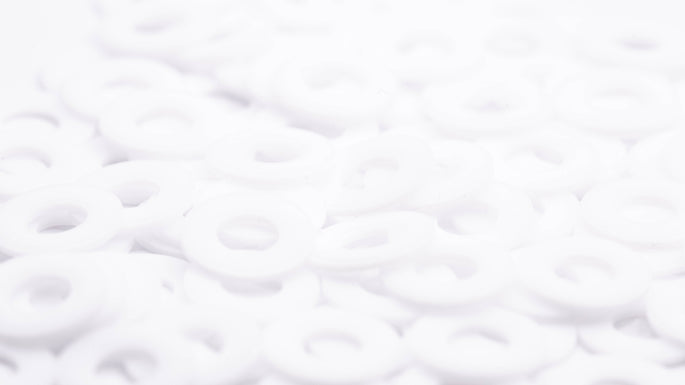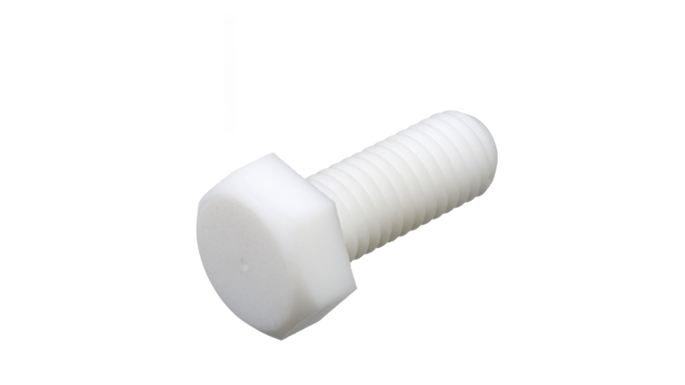What is Polytetrafluoroethylene (PTFE)? | High Performance Polymer USA | Polymer-Plastic Specialists

Polytetrafluoroethylene (PTFE) is a type of polymer that is made from monomers called tetrafluoroethylenes. It is a fluoropolymer that is known for its excellent chemical resistance, low coefficient of friction, and high temperature resistance.
PTFE is a non-polar, hydrophobic material that does not react with most chemicals and is resistant to a wide range of chemicals, including acids, bases, and organic solvents. It has a high melting temperature of 327°C (621°F) and can withstand temperatures up to 260°C (500°F) continuously.

PTFE - Key Properties
One of the unique properties of PTFE is its low coefficient of friction. It has a coefficient of friction that is lower than that of any other solid material, making it an excellent choice for use in applications where low friction is required. PTFE is often used as a coating for other materials to reduce their coefficient of friction, such as in the production of bearings and gears.
PTFE is also an excellent electrical insulator and has a high dielectric strength, making it suitable for use in electrical and electronic applications where high temperature resistance and good electrical insulation are required.
PTFE Applications
-
Aerospace industry:
PTFE is often used in the aerospace industry for structural components, such as spars, ribs, and bulkheads, where high strength and stiffness are required. It is also used in the production of fuel cells and other electrical components, due to its good electrical insulation properties.
-
Automotive industry:
PTFE is used in the automotive industry for structural components, such as engine parts, transmission parts, and drivetrain components, where high strength and stiffness are required. It is also used in the production of fuel cells and other electrical components, due to its good electrical insulation properties.
-
Electronics industry:
PTFE is used in the electronics industry for a variety of applications, including the production of connectors, switches, and other electrical components. It is also used in the production of printed circuit boards and other electronic components, due to its good electrical insulation properties.
-
Seals and gaskets
Seals and gaskets: PTFE is used in the production of seals, gaskets, and other sealing products, due to its excellent chemical resistance and low coefficient of friction.
Summarised Properties of PTFE:
-
Exceptional Chemical Resistance - Perfect for applications in the pharma sector.
Low Adhesive Properties - Ideal for application that require self lubrication.
High UV Resistance - Low rates of deterioration in external applications.
Low Water Absorption Rates - A great alternative to nylon. -
- Max operation temperature 260°C
- Ultra low weight
- Flame resistance (V-0)
- Abrasion resistance
- Hydrolysis resistance
- Great electrical insulating properties
-
- Non-Magnetic
- Low thermal conductivity
- Non-Corrosive
- Material flexibility
- Low coefficent of friction
- High thermal stability

PTFE Datasheet
Our PTFE components use high grade raw material. View our data sheet for more info.
PTFE Summary
PTFE is a high performance polymer that is known for its excellent chemical resistance, low coefficient of friction, and high temperature resistance. It is a versatile material that is used in a wide range of applications where its unique properties make it a suitable choice.
PTFE Screws, Nuts and Flat Washers
High Performance Polymer offer a range of PTFE components and fasteners. Find out more by selecting a product below:







